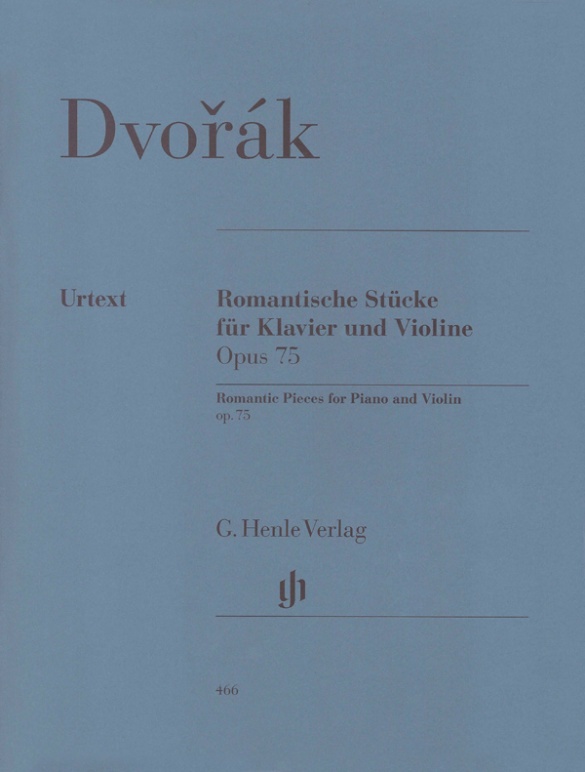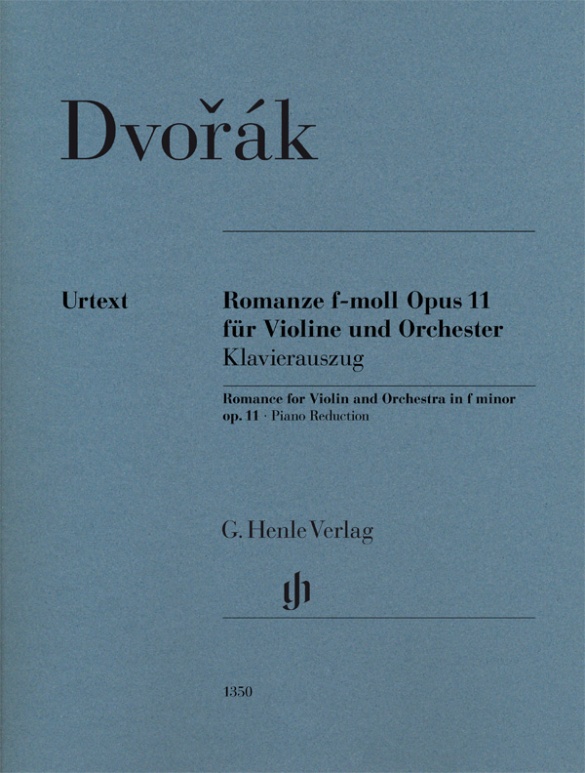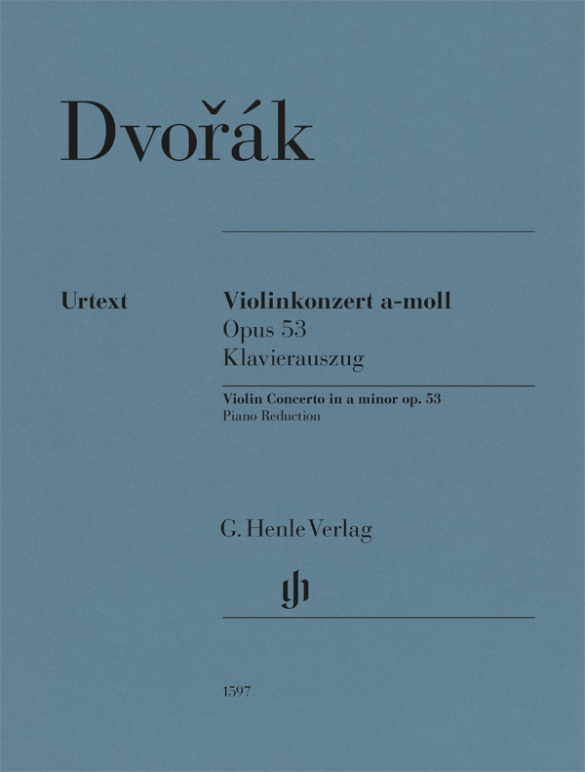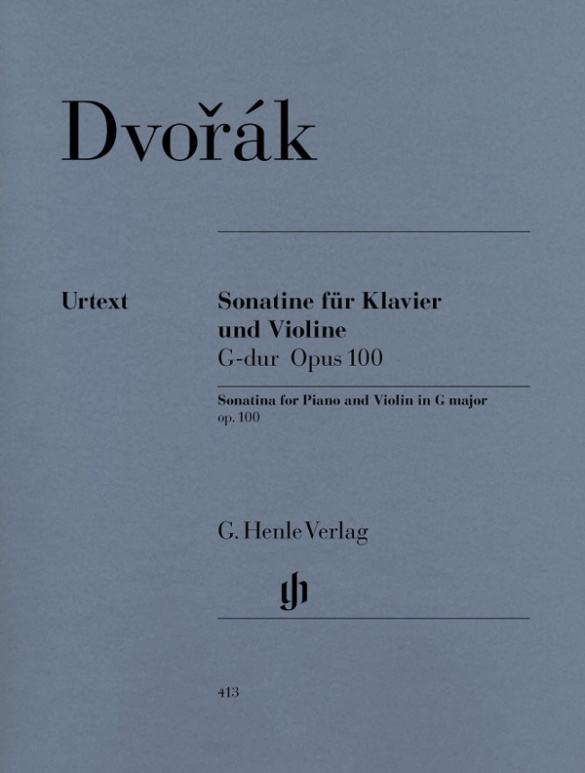

Antonín Dvorák
Sonatine pour violon en Sol majeur op. 100
La célèbre «Symphonie du nouveau monde» de Dvořák contient des tournures évoquant l’atmosphère de «mélodies indiennes» et de spirituals, en particulier le mode pentatonique (musique à cinq tons) et les rythmes syncopés. Dans sa sonatine pour violon et piano op. 100 composée entre 1892 et 1894 pendant le premier séjour du compositeur aux États-Unis, fleurissent également des mélodies délicates issues de cet univers sonore qui confèrent beaucoup de charme à cette œuvre de musique de chambre en quatre mouvements. Cette dernière est dédiée aux enfants de Dvořák, Otilie (15 ans) et Antonin (10 ans), et adaptée à leurs compétences musicales, respectivement au piano et au violon. Dvořák écrit toutefois qu’«elle devrait divertir les grands et les adultes aussi, comme ils peuvent le faire». Élaborée avec soin, l’édition Henle urtext comporte une préface détaillant l’état des sources et s’appuie sur le manuscrit autographe ainsi que sur la première édition parue chez Simrock.
CONTENU/DÉTAILS
(Explanation)
CONCERNANT LE COMPOSITEUR
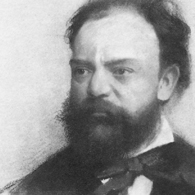
Antonín Dvorák
Il est avec Smetana le compositeur tchèque le plus illustre du XIXe s. Il a contribué à la diffusion et la reconnaissance mondiales de la musique tchèque. Parmi ses quelque 200 œuvres qui s’étendent à tous les genres habituels, figurent 9 symphonies, 14 quatuors à cordes et 12 opéras.
| 1841 | Né le 8 septembre à Nelahozeves au bord de la Moldau, fils d’un boucher et aubergiste. |
| 1853 | Fréquente l’école secondaire à Zlonice; c’est là qu’il reçoit une éducation musicale complète auprès de Josef Toman et du cantor Antonín Liehmann ; puis formation à Kamnitz (1856-57). |
| 1857–59 | Études à l’école d’orgue à Prague. Jusqu’en 1871 il gagne sa vie en tant que professeur de musique, organiste et altiste. |
| 1861 | Quintette à cordes en La mineur op. 1, sa première œuvre. |
| 1862 | Poste d’altiste solo à l’orchestre du Théâtre Provisoire (entre autres sous la direction de Smetana). |
| 1873 | Percée avec la création à Prague de l’hymne patriotique «Les Héritiers de la Montagne blanche» op. 30. Emploi à l’école de musique privée de Prague. Plusieurs bourses d’État. |
| 1874–77 | Organiste à l’église Saint-Adalbert. |
| à partir de 1876 | Les «Klänge aus Mähren» (Duos moraves) op. 20, 29, 32 et 38 (1876-77), «Rhapsodies slaves» op. 45 et la première série des «Danses slaves» op. 46 (les deux en 1878) remportent un grand succès. Sa renommée au-delà des frontières est croissante. |
| 1882 | Création de l’opéra «Dimitrij» dans la tradition du Grand Opéra. |
| 1884 | Première invitation en Angleterre. Huit autres suivront. |
| 1886 | Création de l’oratorio «Sainte Ludmilla» op. 71. |
| 1891 | Professeur de composition au conservatoire de Prague. |
| 1891–95 | Directeur du National Conservatory of Music à New York. |
| 1893 | Création à New York de la Symphonie du Nouveau Monde n° 9 op. 95 (traits de folklore américain, procédé cyclique). |
| 1901 | Création à Prague de «Rusalka», son opéra le plus célèbre. |
| 1904 | Exécution à Prague de son dernier opéra «Armida». Il meurt le 1er mai à Prague. |
About the Authors
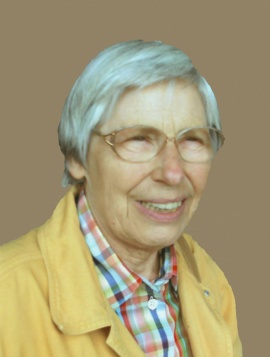
Sonja Gerlach (Editeur)
Sonja Gerlach was born in Hannover in 1936. She did a secondary school teaching degree (Staatsexamen) in music and mathematics in Berlin. From 1965 to 1999 she was a research associate and editor at the Joseph Haydn-Institut in Cologne. In addition to her work as an editor and researcher she addressed questions concerning the chronology of Haydn’s symphonies. She is also very interested in problems of ascertaining authenticity of works in Haydn’s different genres.
In 2000 she retired and moved to Munich where she now lives.
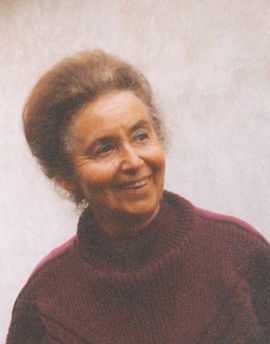
Zdenka Pilková (Editeur)
Dr. Zdeňka Pilková, CSc (1931 Praha-1999 Praha) studied musicology and ethnography at Charles University Prague and graduated in 1955 (The dramatic Works of Jiří Benda, edited 1960 Prague) and received her PhD in 1968 (The Music Section of Umělecká beseda 1863-1963).
Her professional career began in 1955 in the Music Departement of the Czech Radio Prague, from 1964-1991 she worked in the Institut for Musicology (Czech Academy of Sciences). As a visiting lecturer she was active at Charles University Prague. Her special field was Czech music of the 18th century, especially G. Benda, F. Benda, J. Mysliveček, A. Kamel, J. Neruda. She presented papers at numerous international conferences and lectured in Europe and overseas. Dr Pilková collaborated with Grove Dictionary of Music and Musicians and coordinated the Czech participation in the project "The Symphony 1720-1840", Garland NY. In her private life Zdeňka Pilková was a member of the Studio of Chamber Dance in the style of Isadora Duncan. She published about 60 studies on the personalities of composers of the 18th-19th centuries.
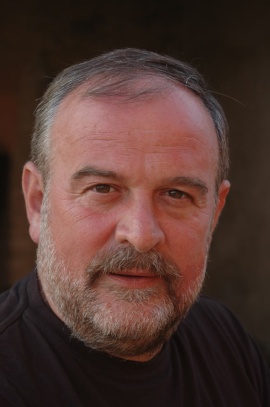
Helmut Deutsch (Doigtés)
Prof. Helmut Deutsch, born in 1945 in Vienna, studied piano and composition at the music conservatory there, as well as musicology at Vienna University. In 1967 he was awarded the Vienna Composition Prize. As a student he already began to specialize in chamber music and Lieder accompaniment. He has played for many world-class instrumentalists as well as in most forms of chamber music.
He began his career as an accompanist with the soprano Irmgard Seefried. Since then he has played for many of the top singers of our time. For twelve years he worked closely with Hermann Prey. Today, Helmut Deutsch is a Professor of Lied at the Hochschule für Musik in Munich and regularly gives master-classes in interpretation in Europe and Japan. Many of his numerous recordings have been awarded prizes.
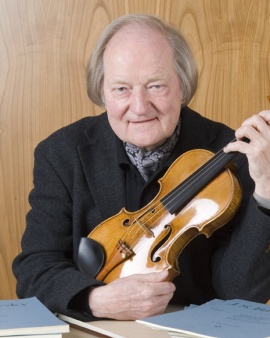
Kurt Guntner (Doigtés violon)
Prof. Kurt Guntner was born in Munich on Mozart’s 183rd birthday. He studied the violin with Ludwig Ackermann, Max Rostal and Henryk Szeryng. At the age of 18, he made his solo debut in the Kongreßsaal at the German Museum in Munich, performing Beethoven’s Violin Concerto with the Munich Philharmonic Orchestra. At the age of 22 he was appointed first concertmaster with the Bavarian State Orchestra. After 10 eventful years at the Bavarian State Opera with conductors such as Ferenc Fricsay, Joseph Keilberth and Hans Knappertsbusch, Rudolf Kempe invited him to become the first concertmaster with the Munich Philharmonic Orchestra, giving him the opportunity to perform the violin solo in many of the great violin concertos.
Of particular appeal were the BR’s invitations to perform and record great violin concertos that were seldom played, including those by Casella, Schillings, Szymanowsky. Kurt Eichhorn initiated this series– Jan Koetsier, Marek Janowski and others conducted other concertos. Kurt Guntner was also first concertmaster with the Bayreuth Festival Orchestra for many years, and played with the Munich Bach Orchestra under Karl Richter, in the Association of Soloists in The Bach Week in Ansbach and with the Münchner Bachsolisten. In 1972 he founded the internationally acclaimed ODEON-TRIO, together with the cellist Angelica May and the pianist Leonard Hokanson, touring all over the world with them for 25 years. In 1976 Guntner was called to the tenured chair of violin at Munich’s Hochschule für Musik und Theater, teaching students from around the world for 28 years.
He made numerous recordings for radio, television, record and CD. Karl Schumann described Guntner’s broad musical personality thus: “Kurt Guntner is a practical orchestral musician, soloist, chamber musician and educator in one person”.
In 1997 Kurt Guntner was awarded the order of merit (first class) of the Federal Republic of Germany.
Kurt Guntner died on 9 January 2015 in Munich.
He was closely associated with G. Henle Publishers for several decades. Since the end of the 1980s he had produced numerous Urtext editions of works for violin for the publishing house, sharing pedagogically polished bowings and fingerings for different works including violin concertos by Bach, Haydn, Mozart, Bruch and Tchaikovsky, as well as numerous other editions.
Informations sur la sécurité du produit

G. Henle Verlag
Vous trouverez ici des informations sur le fabricant du produit.G. Henle Verlag e.K.
Forstenrieder Allee 122
81476 München
Allemagne
info@henle.de
www.henle.com
recommandations
autogenerated_cross_selling
Autres éditions de ce titre
Autres éditions de ce titre


